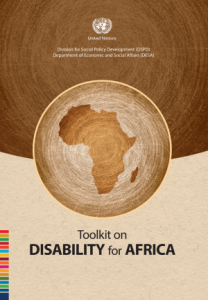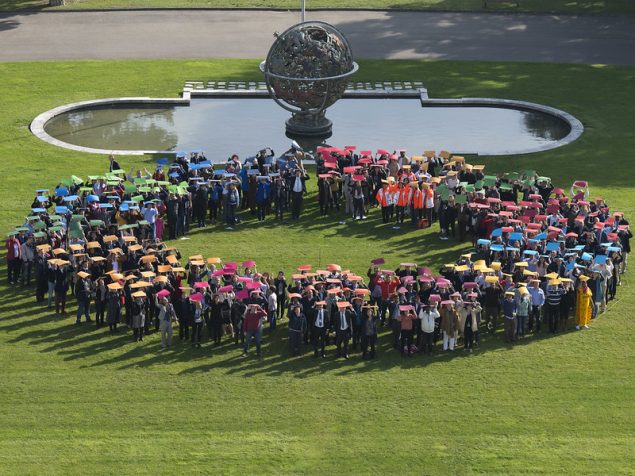In December 2001 Mexico proposed that the General Assembly establish an Ad Hoc Committee to consider proposals for a comprehensive and integral international convention to protect and protect the rights and dignity of persons with disabilities. This Ad Hoc Committee held its first session in August of 2002, and set out the procedures for the participation of civil society during the upcoming negotiations. The negotiation process was to see unprecedented levels of civil society participation.
The second session of the Ad Hoc Committee met in August of 2003 and established a working group to prepare a draft text. Twenty-seven governmental representatives designated by regional groups, twelve representatives from NGOs and one representative of National Human Rights Institutions comprised the working group. In January 2004 the working group met and produced a working draft of the convention text, taking into account the numerous draft texts submitted by States and others.
In May/June of 2004 the third session of the Ad Hoc Committee conducted a first reading of the working group draft. The Ad Hoc Committee discussed whether it should meet in closed session in the future or in the presence of civil society organizations and national human rights institutions. Work continued in August/September of 2004 with the fourth session of the Ad Hoc Committee when it completed the first reading of the draft text and began the second reading. The participation of civil society organizations and national human rights institutions in the sessions of the Committee was confirmed although their right to intervene was limited.
The fifth session of the Ad Hoc Committee occurred in January/February of 2005 during which informal consultations on specific draft articles were held. Civil society organizations, national human rights institutions and inter-governmental organizations were allowed to attend the informal consultations although only States had a right to intervene.
The second reading of the draft text of the convention was completed during the sixth session of the Ad Hoc Committee in August 2005. The Chairperson prepared a revised text, reflecting debate at the third, fourth and fifth sessions for presentation at the seventh session of the Committee. This reading of the Chairperson’s text was completed at the seventh session of the Ad Hoc Committee in January 2006.
Mexico led informal consultations on the issues of international monitoring from May to August 2006. In August, the eighth session of the Ad Hoc Committee finalized negotiations on the draft Convention and a separate Optional Protocol and adopted the texts ad interim subject to a technical review being undertaken by a drafting committee consisting of State representatives. Work continued from September through November 2006 when Liechtenstein convened the drafting group which undertook a technical review to ensure uniformity of terminology throughout the text and to harmonize the versions in the six official languages of the UN. On 13 December 2006 the resumed eighth session of the Ad Hoc Committee adopted the final draft of the Convention and its Optional Protocol with the technical amendments suggested by the drafting committee. The UN General Assembly adopted by consensus the Convention on the Rights of Persons with Disabilities and its Optional Protocol. The negotiation process represented the quickest negotiation of a Convention in United Nations history, with unprecedented levels of participation of civil society organizations.
On 30 March 2007 the Convention and Optional Protocol opened for signature at UN Headquarters in New York, with a record number of 82 opening signatories. States or regional integration organizations may now sign the Convention and Optional Protocol at any time at UN Headquarters in New York.
The Convention entered into force on 8 May 2008. Currently, the Conference of States Parties meets annualy and elects members of the Committee on the Rights of Persons with Disabilities.




